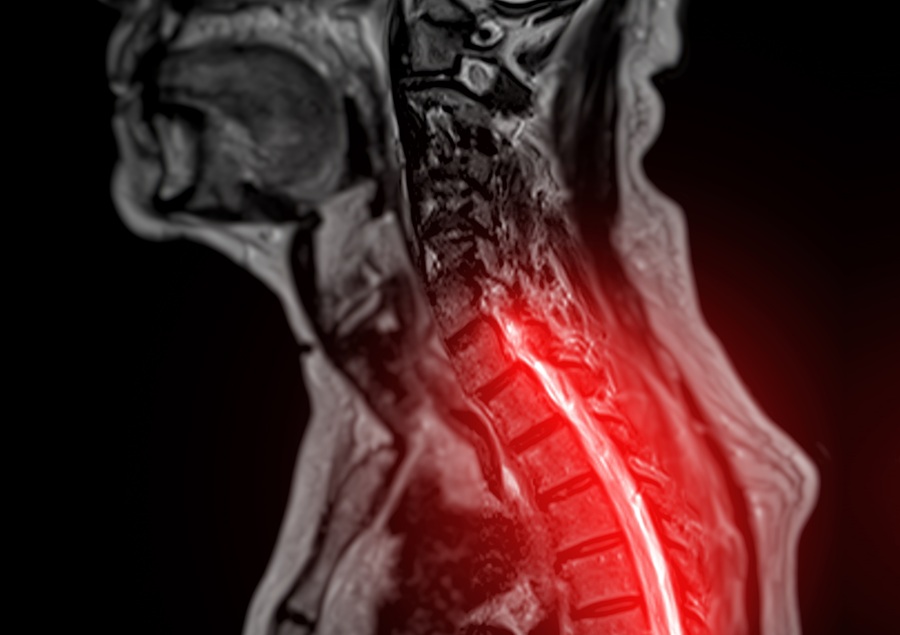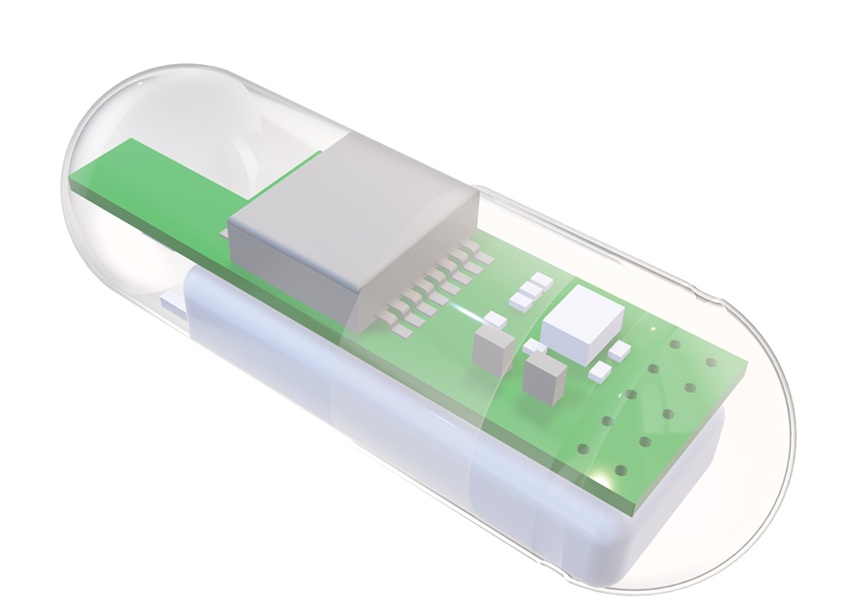Enzo Biochem Launches Proprietary Test for Detection of Coronavirus SARS-CoV-2 IgG Antibody
|
By HospiMedica International staff writers Posted on 21 May 2020 |
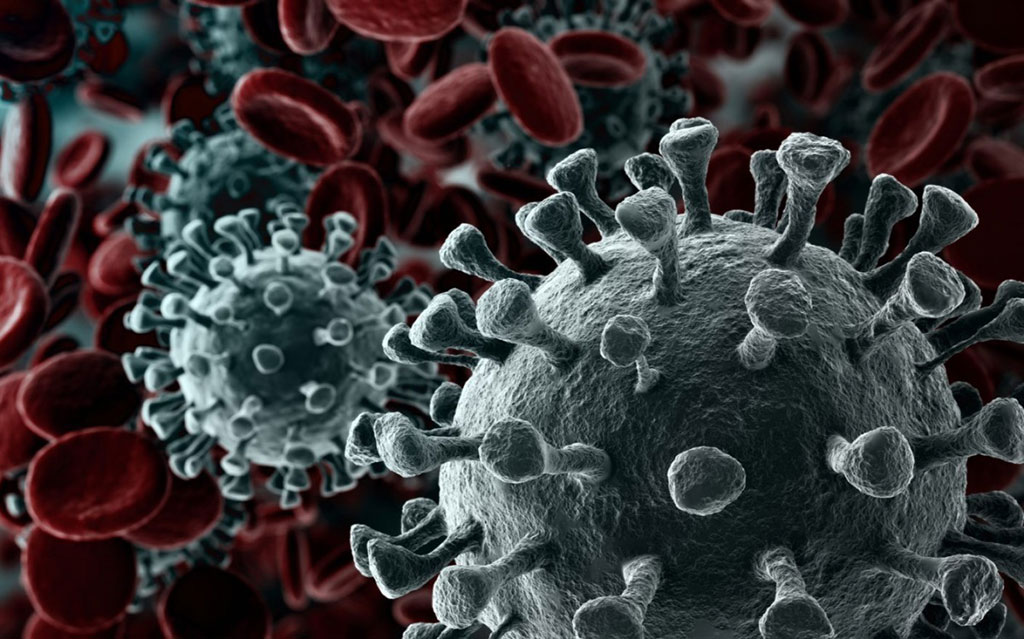
Illustration
Enzo Biochem (New York, NY, USA) has launched a SARS-CoV-2 IgG ELISA assay kit for serological detection of IgG antibodies against the novel coronavirus under the FDA’s Emergency Use Authorization (EUA) authority as both products and services.
The assay permits the qualitative detection of Immunoglobulin G (IgG) antibodies to SARS-CoV-2 in human serum and is designed to provide accurate results in a clinical laboratory setting with low- to high-throughput processing of specimens. The IgG Antibody Kit detects IgG antibodies specific for SARS-CoV-2 to identify individuals previously exposed to and infected by the coronavirus, even if they have never displayed symptoms. In a clinical study, the performance of the SARS-CoV-2 ELISA kit was compared with a molecular diagnosis (PCR) using serum samples from approximately 150 individuals. Positive percent agreement (PPA) and negative percent agreement (NPA) with a comparator PCR observed 96.5% specificity and 100% sensitivity.
Enzo’s high-throughput kit for IgG antibody utilizes a routine blood collection at a lab’s patient service center, a doctor’s office, or a hospital. The sample is then sent to the clinical laboratory for processing and analysis. This workflow permits scalable testing to be performed under controlled conditions to deliver accurate and sensitive results. These new serological tests, which are built on Enzo’s proprietary ELISA platform, work with serum specimens and are formatted for both manual test processing situations as well as automated, high-throughput clinical workflows. Enzo’s proprietary 96-well ELISA based technology is readily scalable to meet the needs of the clinical laboratory environment, while providing reliable and economical results. All kits are manufactured at Enzo’s GMP certified production facility.
“Serological testing will play a critical role in identifying individuals who are transitioning to post-infection status and have developed an immune response. While some competitor assays detect total immunoglobulin with no differentiation between immunoglobulin types, Enzo’s serological assays differentiate between these immunoglobulin types, thereby providing more information to clinicians for determining particular stages of infection,” said Dr. Elazar Rabbani, Enzo CEO. “As with the launch of Enzo’s molecular test for the detection of active coronavirus infection, our serological assay test kit will be available for purchase by other clinical labs and is being used to perform serological testing at Enzo’s own CLIA-certified laboratory.”
Related Links:
Enzo Biochem
The assay permits the qualitative detection of Immunoglobulin G (IgG) antibodies to SARS-CoV-2 in human serum and is designed to provide accurate results in a clinical laboratory setting with low- to high-throughput processing of specimens. The IgG Antibody Kit detects IgG antibodies specific for SARS-CoV-2 to identify individuals previously exposed to and infected by the coronavirus, even if they have never displayed symptoms. In a clinical study, the performance of the SARS-CoV-2 ELISA kit was compared with a molecular diagnosis (PCR) using serum samples from approximately 150 individuals. Positive percent agreement (PPA) and negative percent agreement (NPA) with a comparator PCR observed 96.5% specificity and 100% sensitivity.
Enzo’s high-throughput kit for IgG antibody utilizes a routine blood collection at a lab’s patient service center, a doctor’s office, or a hospital. The sample is then sent to the clinical laboratory for processing and analysis. This workflow permits scalable testing to be performed under controlled conditions to deliver accurate and sensitive results. These new serological tests, which are built on Enzo’s proprietary ELISA platform, work with serum specimens and are formatted for both manual test processing situations as well as automated, high-throughput clinical workflows. Enzo’s proprietary 96-well ELISA based technology is readily scalable to meet the needs of the clinical laboratory environment, while providing reliable and economical results. All kits are manufactured at Enzo’s GMP certified production facility.
“Serological testing will play a critical role in identifying individuals who are transitioning to post-infection status and have developed an immune response. While some competitor assays detect total immunoglobulin with no differentiation between immunoglobulin types, Enzo’s serological assays differentiate between these immunoglobulin types, thereby providing more information to clinicians for determining particular stages of infection,” said Dr. Elazar Rabbani, Enzo CEO. “As with the launch of Enzo’s molecular test for the detection of active coronavirus infection, our serological assay test kit will be available for purchase by other clinical labs and is being used to perform serological testing at Enzo’s own CLIA-certified laboratory.”
Related Links:
Enzo Biochem
Latest COVID-19 News
- Low-Cost System Detects SARS-CoV-2 Virus in Hospital Air Using High-Tech Bubbles
- World's First Inhalable COVID-19 Vaccine Approved in China
- COVID-19 Vaccine Patch Fights SARS-CoV-2 Variants Better than Needles
- Blood Viscosity Testing Can Predict Risk of Death in Hospitalized COVID-19 Patients
- ‘Covid Computer’ Uses AI to Detect COVID-19 from Chest CT Scans
- MRI Lung-Imaging Technique Shows Cause of Long-COVID Symptoms
- Chest CT Scans of COVID-19 Patients Could Help Distinguish Between SARS-CoV-2 Variants
- Specialized MRI Detects Lung Abnormalities in Non-Hospitalized Long COVID Patients
- AI Algorithm Identifies Hospitalized Patients at Highest Risk of Dying From COVID-19
- Sweat Sensor Detects Key Biomarkers That Provide Early Warning of COVID-19 and Flu
- Study Assesses Impact of COVID-19 on Ventilation/Perfusion Scintigraphy
- CT Imaging Study Finds Vaccination Reduces Risk of COVID-19 Associated Pulmonary Embolism
- Third Day in Hospital a ‘Tipping Point’ in Severity of COVID-19 Pneumonia
- Longer Interval Between COVID-19 Vaccines Generates Up to Nine Times as Many Antibodies
- AI Model for Monitoring COVID-19 Predicts Mortality Within First 30 Days of Admission
- AI Predicts COVID Prognosis at Near-Expert Level Based Off CT Scans
Channels
Artificial Intelligence
view channelCritical Care
view channel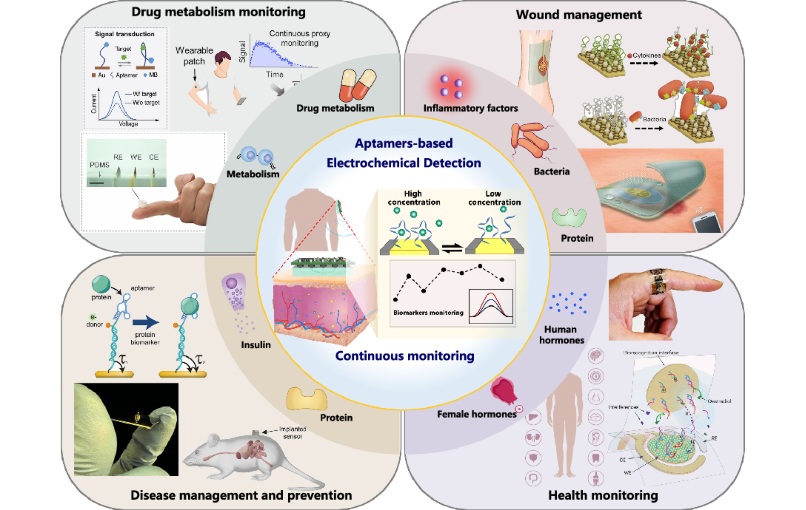
Aptamers Enable Real-Time Biomarker Tracking Without Blood Draws
Continuous monitoring of biomarkers is critical for early disease detection, treatment evaluation, and personalized health management. Yet most clinical tests still rely on invasive, single-point blood... Read more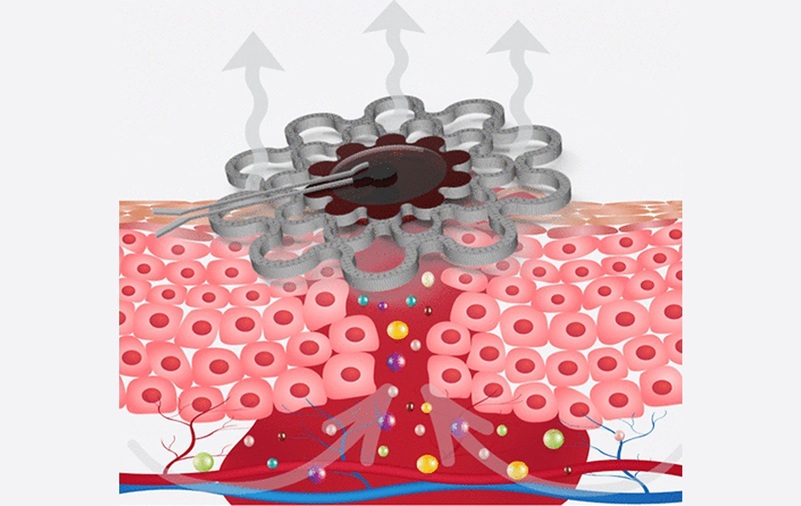
Specialized Dressing with Sensor Monitors pH Levels in Chronic Wounds
Any wound has the potential to become chronic, but the risk is significantly higher in individuals with certain medical conditions. Once a wound becomes chronic, healing slows, complications increase,... Read moreSurgical Techniques
view channel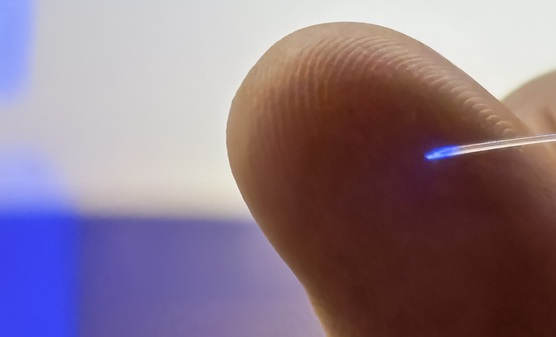
Brain Implant Records Neural Signals and Delivers Precise Medication
Neurological diseases such as epilepsy involve complex interactions across multiple layers of the brain, yet current implants can typically stimulate or record activity from only a single point.... Read moreAI-Based OCT Image Analysis Identifies High-Risk Plaques in Coronary Arteries
Lipid-rich plaques inside coronary arteries are strongly associated with heart attacks and other major cardiac events. While optical coherence tomography (OCT) provides detailed images of vessel structure... Read moreNeural Device Regrows Surrounding Skull After Brain Implantation
Placing electronic implants on the brain typically requires removing a portion of the skull, creating challenges for long-term access and safe closure. Current methods often involve temporarily replacing the skull or securing metal plates, which can lead to complications such as skin erosion and additional surgeries.... Read morePatient Care
view channel
Revolutionary Automatic IV-Line Flushing Device to Enhance Infusion Care
More than 80% of in-hospital patients receive intravenous (IV) therapy. Every dose of IV medicine delivered in a small volume (<250 mL) infusion bag should be followed by subsequent flushing to ensure... Read more
VR Training Tool Combats Contamination of Portable Medical Equipment
Healthcare-associated infections (HAIs) impact one in every 31 patients, cause nearly 100,000 deaths each year, and cost USD 28.4 billion in direct medical expenses. Notably, up to 75% of these infections... Read more
Portable Biosensor Platform to Reduce Hospital-Acquired Infections
Approximately 4 million patients in the European Union acquire healthcare-associated infections (HAIs) or nosocomial infections each year, with around 37,000 deaths directly resulting from these infections,... Read moreFirst-Of-Its-Kind Portable Germicidal Light Technology Disinfects High-Touch Clinical Surfaces in Seconds
Reducing healthcare-acquired infections (HAIs) remains a pressing issue within global healthcare systems. In the United States alone, 1.7 million patients contract HAIs annually, leading to approximately... Read moreHealth IT
view channel
EMR-Based Tool Predicts Graft Failure After Kidney Transplant
Kidney transplantation offers patients with end-stage kidney disease longer survival and better quality of life than dialysis, yet graft failure remains a major challenge. Although a successful transplant... Read more
Printable Molecule-Selective Nanoparticles Enable Mass Production of Wearable Biosensors
The future of medicine is likely to focus on the personalization of healthcare—understanding exactly what an individual requires and delivering the appropriate combination of nutrients, metabolites, and... Read moreBusiness
view channel
Medtronic to Acquire Coronary Artery Medtech Company CathWorks
Medtronic plc (Galway, Ireland) has announced that it will exercise its option to acquire CathWorks (Kfar Saba, Israel), a privately held medical device company, which aims to transform how coronary artery... Read more
Medtronic and Mindray Expand Strategic Partnership to Ambulatory Surgery Centers in the U.S.
Mindray North America and Medtronic have expanded their strategic partnership to bring integrated patient monitoring solutions to ambulatory surgery centers across the United States. The collaboration... Read more
FDA Clearance Expands Robotic Options for Minimally Invasive Heart Surgery
Cardiovascular disease remains the world’s leading cause of death, with nearly 18 million fatalities each year, and more than two million patients undergo open-heart surgery annually, most involving sternotomy.... Read more














